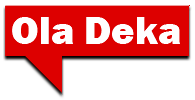Με πιο τρόπο θα μεγαλώσει το Facebook αν δεν υπάρχει internet για να συνδεθούν οι νέοι χρήστες; Μα φυσικά με το internet που θα προσφέρει το Facebook στο επόμενο δισεκατομμύριο ανθρώπων.
FACEBOOK CONNECTIVITY LAB: DRONES, SATELLITES AND LASERS
Το επιχειρηματικό δαιμόνιο του Mark Zuckerberg και πιθανότατα και ο αλτρουισμός του, μαζί με γερές δόσεις τεχνολογίας και drones έχουν στόχο να προσφέρουν υπηρεσίες internet σε όλο τον κόσμο. Ακόμα και εκεί που η πρόσβαση σε ηλεκτρικό και καθαρό νερό δεν θεωρείται δεδομένη.
Με ένα εξωτικό συνδυασμό δορυφόρων, λέιζερ και αεροπλάνων (drones) το Facebook θα προσφέρει βασικές υπηρεσίες internet και πρόσβαση στο web σε περιοχές του κόσμου όπως η Αφρική, η Παραγουάη και οι Φιλιππίνες. Η προσπάθεια έχει ξεκινήσει και προχωράει από το Internet.org και το Facebook Connectivity Lab με την βοήθεια ειδικών από όλο τον κόσμο. Όπως ακριβώς προσπαθεί να κάνει το Google χρησιμοποιώντας αερόστατα στο Project Loon.
Ο Zuckerberg δήλωσε χαρακτηριστικά:
“In our effort to connect the whole world with Internet.org, we’ve been working on ways to beam internet to people from the sky.
Today, we’re sharing some details of the work Facebook’s Connectivity Lab is doing to build drones, satellites and lasers to deliver the internet to everyone.
Our goal with Internet.org is to make affordable access to basic internet services available to every person in the world.
We’ve made good progress so far. Over the past year, our work in the Philippines and Paraguay alone has doubled the number of people using mobile data with the operators we’ve partnered with, helping 3 million new people access the internet.
We’re going to continue building these partnerships, but connecting the whole world will require inventing new technology too. That’s what our Connectivity Lab focuses on, and there’s a lot more exciting work to do here.
Our team has many of the world’s leading experts in aerospace and communications technology, including from NASA’s Jet Propulsion Lab and Ames Research Center. Today we are also bringing on key members of the team from Ascenta, a small UK-based company whose founders created early versions of Zephyr, which became the world’s longest flying solar-powered unmanned aircraft. They will join our team working on connectivity aircraft.
You can find more details on our efforts below. We’re looking forward to working with our Internet.org partners and operators worldwide to deploy these technologies and deliver on the dream of connecting the world”.



